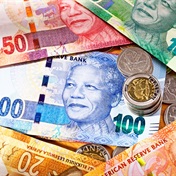Pretoria - In a surprise move, there will be no cut in the deficit as a proportion of gross domestic product (GDP) in the new fiscal year, with the deficit budgeted at 5.3% in 2011/2012 from the same level in 2010/11 – a step which might raise questions over fiscal prudence.
Originally in the mini budget the deficit for 2011/12 was going to be 4.6% of GDP. This is quite a jump in the planned deficit.
In the following years, cuts are proposed, but again the deficits are higher than those estimated in the mini budget – 4.8% (previously 3.9%) and 3.8% (previously 3.2%).
Expenditure additions to the baseline established in the mini budget total R94.1bn.
Finance Minister Pravin Gordhan said government spending would continue to grow over the next three years, though at a slower rate than in the recent past.
Since the mini budget, several additional spending allocations had been made, including provision for a response to the damage caused by last year’s floods.
Part of the revision to baseline allocations was the carry-through cost of the 2010 wage agreement, which required an additional R39.4bn for remuneration of employees over the three-year period.
The public service salary bill had doubled over the past five years, from R156bn to R314bn. This constituted just under 40% of non-interest expenditure.
Debt service costs would amount to R77bn in the next fiscal year, rising to R104bn in 2013/14.
“Though our overall debt burden remains moderate, the size of the budget deficit at present results in debt service costs rising faster than any other category of spending over the period ahead,” Gordhan said.
Referring to the reduction in the deficit over the next three years, Gordhan said to ensure that spending on schools, hospitals and roads would not be crowded out by an ever-rising interest burden, government debt needed to be managed sustainably.
“We don’t want an unmanageable increase in expenditure, nor do we want the severe austerity measures some Western countries have had to adopt,” he said.
National government debt was set to rise from R526bn at the end of 2008/09 to over R1.3 trillion in 2013/14.
The budget review said that over the next three years, as economic growth strengthened, government would consolidate the fiscal position by moderating the rate of expenditure growth.
Priority spending would continue to be financed as government stabilised its borrowing. Fiscal policy would maintain this trajectory as long as economic growth continued to strengthen, rebuilding fiscal space to respond to future crises.
Originally in the mini budget the deficit for 2011/12 was going to be 4.6% of GDP. This is quite a jump in the planned deficit.
In the following years, cuts are proposed, but again the deficits are higher than those estimated in the mini budget – 4.8% (previously 3.9%) and 3.8% (previously 3.2%).
Expenditure additions to the baseline established in the mini budget total R94.1bn.
Finance Minister Pravin Gordhan said government spending would continue to grow over the next three years, though at a slower rate than in the recent past.
Since the mini budget, several additional spending allocations had been made, including provision for a response to the damage caused by last year’s floods.
Part of the revision to baseline allocations was the carry-through cost of the 2010 wage agreement, which required an additional R39.4bn for remuneration of employees over the three-year period.
The public service salary bill had doubled over the past five years, from R156bn to R314bn. This constituted just under 40% of non-interest expenditure.
Debt service costs would amount to R77bn in the next fiscal year, rising to R104bn in 2013/14.
“Though our overall debt burden remains moderate, the size of the budget deficit at present results in debt service costs rising faster than any other category of spending over the period ahead,” Gordhan said.
Referring to the reduction in the deficit over the next three years, Gordhan said to ensure that spending on schools, hospitals and roads would not be crowded out by an ever-rising interest burden, government debt needed to be managed sustainably.
“We don’t want an unmanageable increase in expenditure, nor do we want the severe austerity measures some Western countries have had to adopt,” he said.
National government debt was set to rise from R526bn at the end of 2008/09 to over R1.3 trillion in 2013/14.
The budget review said that over the next three years, as economic growth strengthened, government would consolidate the fiscal position by moderating the rate of expenditure growth.
Priority spending would continue to be financed as government stabilised its borrowing. Fiscal policy would maintain this trajectory as long as economic growth continued to strengthen, rebuilding fiscal space to respond to future crises.




 Publications
Publications
 Partners
Partners










